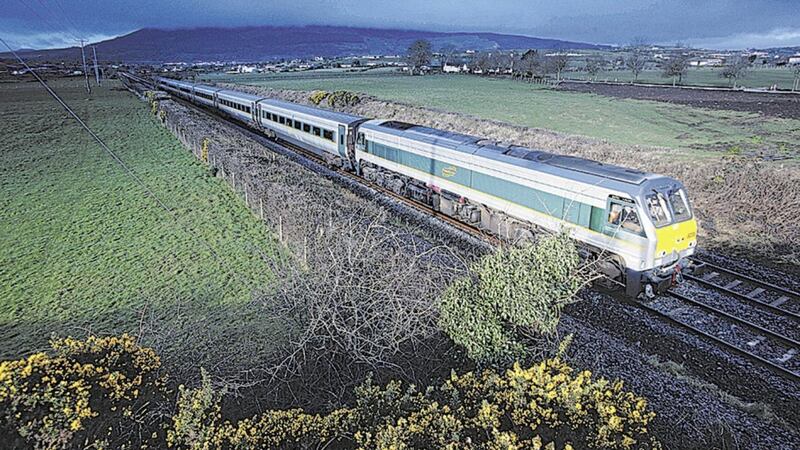A newly qualified doctor has said the pressure facing Northern Ireland’s health service makes his chosen career seem like “walking into the fire”.
Tim Neill (23) from Poyntzpass is currently working in Daisy Hill Hospital and was one of around 270 medical students to graduate from Queen’s University last year.
Having already worked the occasional 72-hour week, he fully understands why junior doctors across Northern Ireland are considering strike action and even permanently moving abroad for better pay and conditions.
“It’s my first year out of uni, so I’m the juniorest of the junior,” he told The Irish News.
“The rota is particularly intense. That has knock-on effects from trying to book your annual leave, your training days and teaching.
“One week at my last post in Craigavon Area Hospital I had 72 hours on the rota,” he said.
“That is not every week, but if you have a number of 12-13 hour shifts in a row it can make things feel pretty tight.”
After accumulating considerable student debt, newly qualified doctors in Northern Ireland currently earn around £26,000 a year compared to £33,000 in England and £32,000 in Scotland.
Junior doctors in the Republic also earn a higher rate.
The British Medical Association has said that inflation has effectively created a 30% pay cut for junior doctors in Northern Ireland over the last 15 years.
A BMA survey of junior doctors in 2023 also found that 75% of members were considering moving abroad for better pay and conditions.
Describing himself as a home bird, Tim said he would still ultimately stay in Northern Ireland to be close to family.
“I’m pretty sure that if you speak to any doctor here, moving away crosses your mind,” he said.
“For me, the comparison between here and other countries like Australia, New Zealand and Canada.
“It appears that their workforce is more valued by the way their medical staff are treated both in training opportunity and remuneration for work.
“At the end of the day, I always use the mantra that doctors are patients too. Any of us can become sick and require attention.
“If you are sitting with several tens of thousands of debt after studying medicine for five years, if you fall sick and can’t work you’re in trouble.”
🔶 Not worth 30.7% less than a Junior Doctor in 2008 💸
— Tim Neill (@timnx44) January 9, 2024
🔶 Not prepared to lose more colleagues to healthcare systems that appreciate their workforce 🏥
🔶 Not missing this opportunity to #VoteYes 🫡✅@BMA_JuniorDocs @Doctors_Vote @BMA_NI @NIJDC pic.twitter.com/GQUsm5aVqH
Hoping to become a GP, Tim said the increasing pressures in the sector felt like he would be “walking into the fire.”
This month, the well-known Derry GP Dr Tom Black surprised many by opening the first hybrid public-private GP service in Northern Ireland.
Accepting fee-paying patients has been a controversial choice to some, but Dr Black said the only option would have been to close the 100-year-old Abbey Medical Practice.
“It’s no shock that GP surgeries are on their knees. I think the mixed model is possibly where it’s going,” said Tim.
“I don’t think there’s many GPs in Northern Ireland that want that to be the case.
“Most of them truly believe in the NHS and free care at the point of need, and any privatisation should be avoided at all costs.
“But these GPs are businesses, they have electric and water bills. The numbers just haven’t added up in recent years.”
On the current strike ballot, he adds: “I would ask that as an F1 doctor, am I worth 30% less than my counterparts were in 2008?
“If anything, the state of our health service has become more challenging with increased demand and more pressure on all services, and yet the pay has not reflected that.
“At the moment there’s just an open floodgate, we’re haemorrhaging staff because they don’t feel appreciated.”









